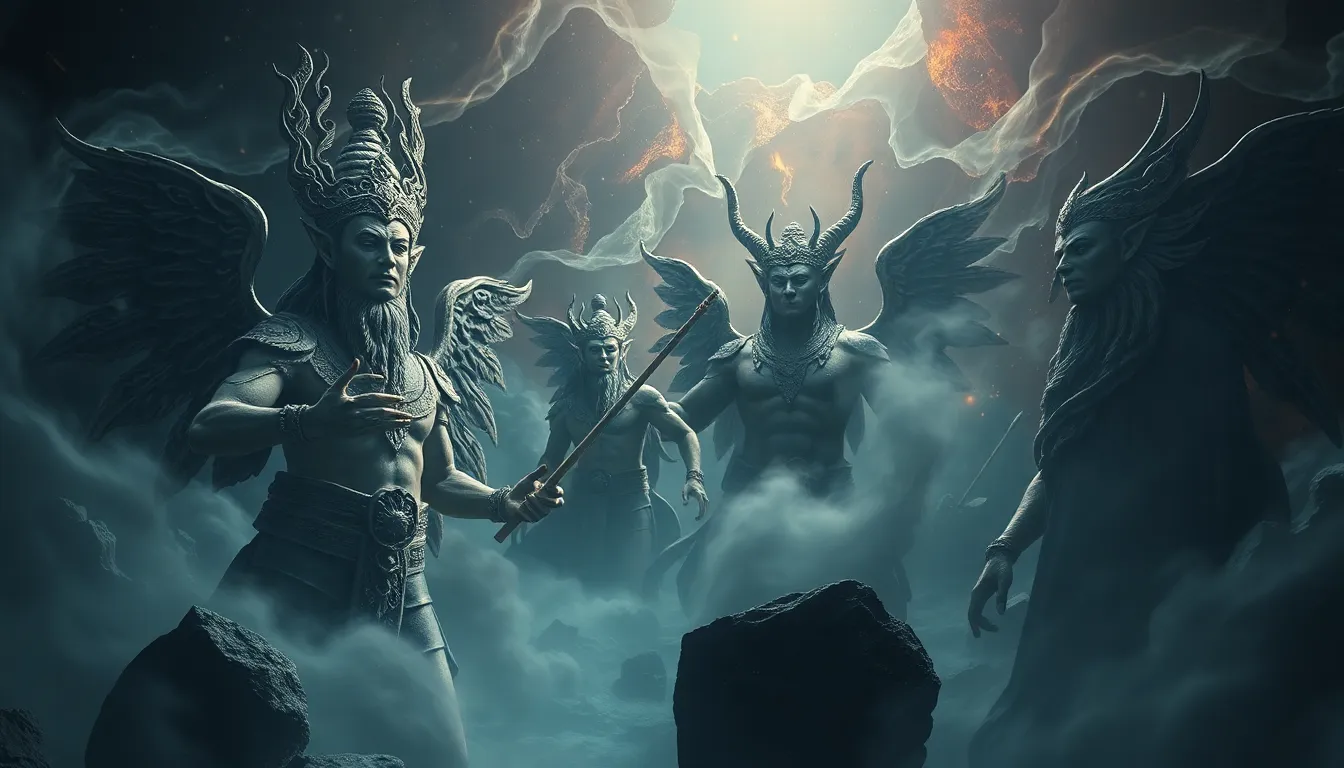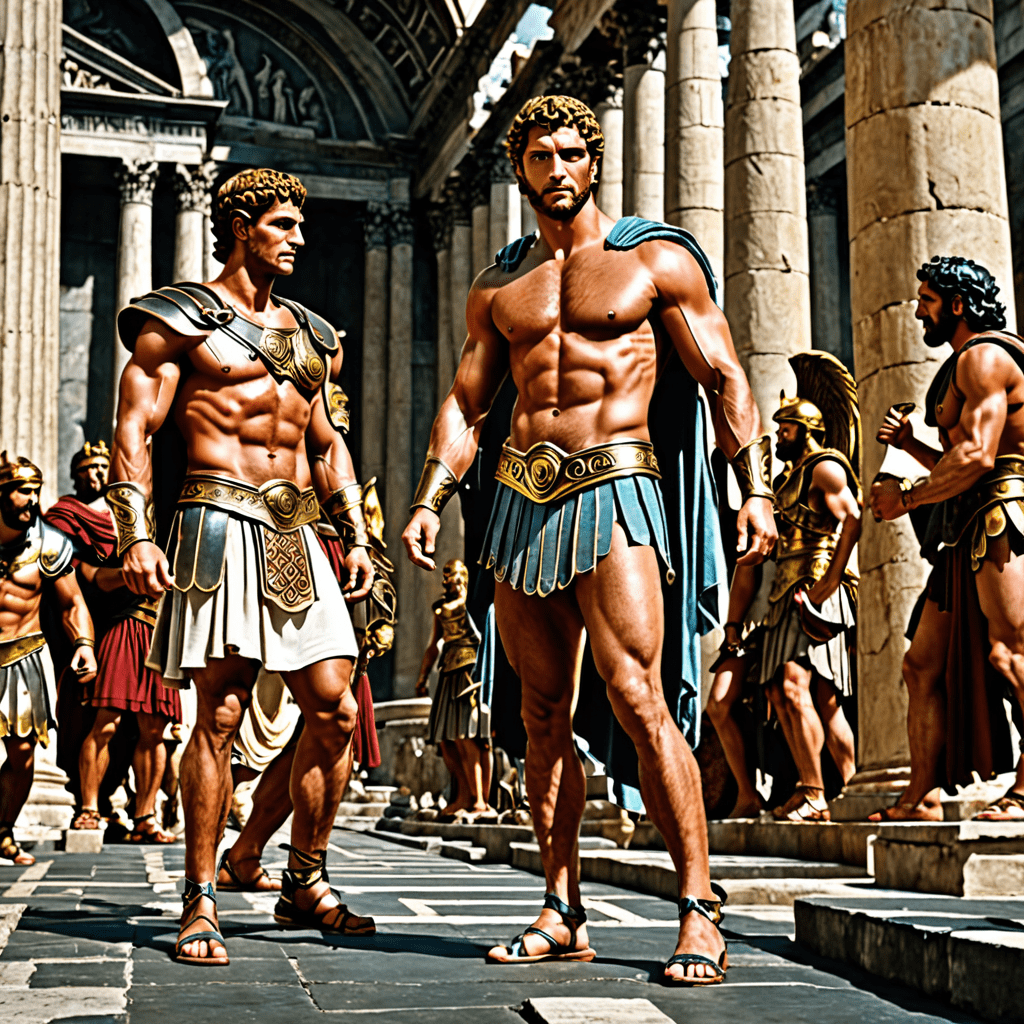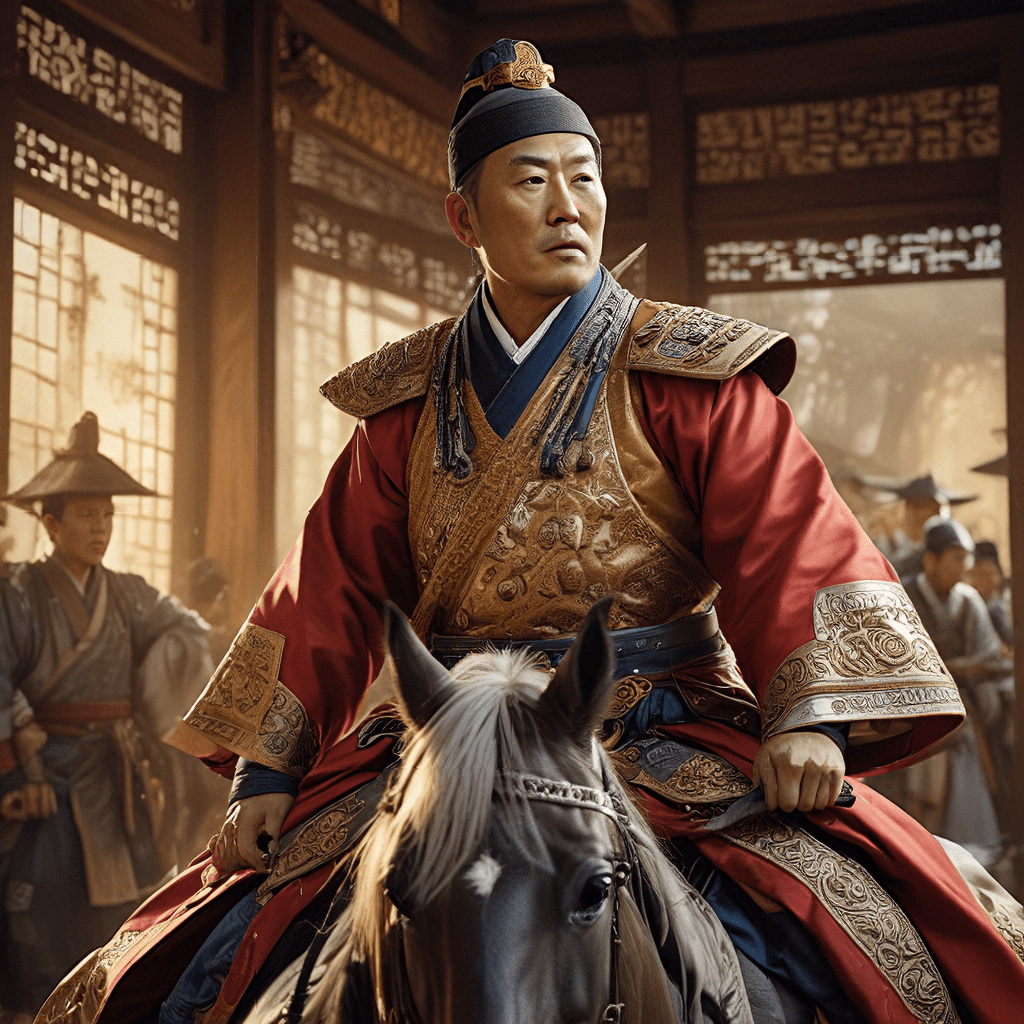The Role of Ancient Deities in Shaping Human Experience
I. Introduction
Ancient deities have played a fundamental role in shaping human experience across various cultures throughout history. These deities, often seen as powerful and divine beings, were central to the belief systems of ancient civilizations, serving as symbols of nature, morality, and the human condition.
The impact of ancient religions on human experience is profound, influencing societal norms, personal identities, and cultural practices. This article explores how ancient deities have left an indelible mark on the fabric of human life, from the rituals we practice to the stories we tell.
II. Historical Context of Ancient Deities
The emergence of polytheistic beliefs can be traced back to early civilizations that sought to understand and explain the world around them. These beliefs formed the foundation of complex religious systems that shaped social structures and cultural identities.
Key ancient civilizations such as Mesopotamia, Egypt, Greece, and the Indus Valley developed rich mythologies and pantheons of gods that represented various aspects of life, from love and war to agriculture and the afterlife.
The evolution of deity worship transitioned from animism, where spirits were believed to inhabit natural objects, to organized religions with structured hierarchies and rituals. This shift allowed for more elaborate expressions of faith and community bonding.
III. The Psychological Impact of Deity Worship
Belief in deities often provides comfort and hope, particularly during challenging times. The presence of a divine figure can reassure individuals that they are not alone in their struggles, fostering a sense of security and belonging.
The psychological effects of rituals and prayers extend beyond mere belief; they can create a sense of community and shared experience. Engaging in these practices can lead to feelings of peace, purpose, and emotional release.
Case studies have shown that during crises, such as natural disasters or societal upheavals, communities that maintain a strong belief in their deities often exhibit collective resilience. The shared faith can be a source of strength, enabling individuals to cope with adversity.
IV. Deities and Moral Frameworks
Ancient gods have significantly influenced ethical systems and societal laws. Many moral teachings attributed to deities have shaped the foundations of modern legal systems and societal norms.
A comparative analysis of moral teachings across different cultures reveals common themes, such as the importance of justice, compassion, and respect for others. For instance, the Ten Commandments in Judeo-Christian traditions echo moral precepts found in other ancient texts.
The legacy of these ancient moral frameworks continues to resonate in contemporary society, influencing debates on ethics, law, and human rights.
V. Deities in Art and Literature
Deities have been represented in myriad forms within ancient art and architecture, often serving as focal points for cultural expression. Statues, temples, and frescoes depicted gods and goddesses, reflecting the values and beliefs of the societies that created them.
Mythological stories involving deities have profoundly influenced literature and storytelling traditions. Epic poems such as the “Iliad” and the “Mahabharata” incorporate divine figures, teaching moral lessons and exploring the human experience through the lens of the divine.
Famous works inspired by ancient deities include:
- The “Epic of Gilgamesh” – exploring themes of mortality and friendship.
- Hesiod’s “Theogony” – detailing the origins of the gods and the universe.
- Ovid’s “Metamorphoses” – chronicling transformations involving divine intervention.
VI. Festivals and Rituals: Expressions of Cultural Identity
Festivals dedicated to deities serve as vital expressions of cultural identity, fostering community bonds. These celebrations often include music, dance, and feasting, allowing participants to connect with their heritage and each other.
Rituals provide a means of connecting the human experience with the divine. Through offerings, prayers, and communal activities, individuals express their devotion and seek blessings from their gods.
Modern adaptations of ancient festivals, such as Diwali in India or the Olympic Games in Greece, maintain their cultural significance while evolving to reflect contemporary values and practices.
VII. The Role of Deities in Personal Identity
Belief in deities contributes significantly to individual self-perception and identity. For many, their relationship with a deity shapes their values, aspirations, and worldview.
The impact of deities on gender roles and societal expectations is also notable. Many ancient religions depicted deities that embodied specific gender traits, influencing how individuals understood their own identities.
Personal narratives and testimonies often reveal how individuals have been influenced by deity worship, with many citing transformative experiences that shaped their paths in life.
VIII. Syncretism and the Transformation of Deity Worship
Syncretism, the blending of different religious beliefs and practices, has been a common phenomenon throughout history. Ancient civilizations often adopted and adapted deities from neighboring cultures, creating rich, hybrid belief systems.
Case studies of syncretism include:
- The merging of Greek and Roman deities, where Zeus became Jupiter.
- The incorporation of indigenous beliefs into Christianity in Latin America.
- Hinduism’s acceptance of local deities into its pantheon.
The ongoing evolution of deities in contemporary spirituality reflects the dynamic nature of belief, where ancient traditions continue to be reinterpreted in modern contexts.
IX. Criticism and the Decline of Ancient Deity Worship
The rise of monotheism significantly impacted polytheistic beliefs, leading to the decline of ancient deity worship in many cultures. As monotheistic religions gained prominence, traditional polytheistic practices were often marginalized or suppressed.
Intellectual movements, such as the Enlightenment, challenged the validity of religious beliefs altogether, promoting rationalism and skepticism. This shift led to a reevaluation of humanity’s relationship with the divine and pushed many to question the relevance of ancient deities.
Despite this decline, the legacy of ancient deities remains ingrained in contemporary culture, influencing art, literature, and even modern spiritual practices.
X. Conclusion
In summary, ancient deities have profoundly shaped human experience by influencing societal norms, personal identities, and cultural practices. Their presence continues to resonate today, reminding us of humanity’s enduring quest for meaning and connection with the divine.




